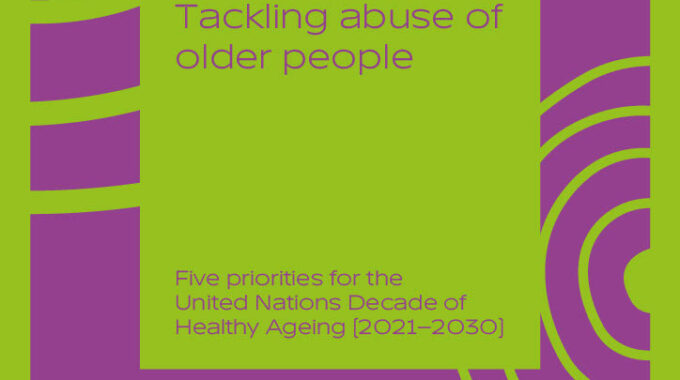
WHO – New resource highlights five priorities for ending abuse of older people
In the context of the annual World Elder Abuse Awareness Day, the World Health Organization (WHO) and partners published Tackling abuse of older people: five priorities for the UN Decade of Healthy Ageing 2021–2030 . The new resource outlines key priorities to prevent and respond to abuse of older people and, hence, contribute to improving their health, well-being and dignity.
Every year 1 in 6 people aged 60 years and older experience some form of abuse, with 2 in 3 staff in institutions such as nursing homes and other long-term care facilities admitting to committing abuse in the past year. Like many forms of violence, abuse of older people has increased during the COVID-19 pandemic. With rapidly population ageing in many countries, this growing trend is expected to continue.
“Abuse of older people is an injustice, which can have serious consequences, including premature mortality, physical injuries, depression, cognitive decline and poverty” notes Etienne Krug, Director of the Department of Social Determinants of Health, WHO. “Despite it being widespread, abuse of older people is largely absent from the global health agenda. The UN Decade of Healthy Ageing 2021–2030 offers a unique 10-year opportunity to address this blight in a concerted, sustained and coordinated way.”





